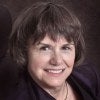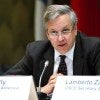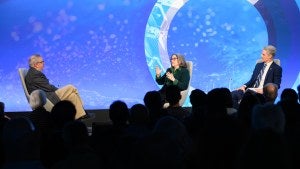Foreign Aid Fallout: The Future of US Global Leadership
Catherine Bertini, Paul Poast, and Ambassador Ian Kelly discuss how USAID’s closure will reshape international development and global security.
About This Event
The dismantling of USAID marks the end of a six-decade era in American foreign assistance and humanitarian response. This shift will not only reshape international development and disaster relief, but also how the United States conducts diplomacy and projects soft power worldwide. How will the absence of USAID impact global stability, security, and America’s standing in the world? How will this affect the numerous communities that USAID has worked with around the globe? Join the Council for a discussion on what USAID's closure means for the future of American soft power and international development.
About the Speakers
Distinguished Fellow, Global Food and Agriculture

Catherine Bertini served as executive director of the UN World Food Program, the world’s largest international humanitarian agency, from 1992 to 2002 prior to joining the Council. She was named the World Food Prize laureate in 2003 for her groundbreaking leadership there.

Senior Nonresident Fellow, Foreign Policy and Public Opinion

Paul Poast is an associate professor of political science at the University of Chicago. In addition to being a senior nonresident fellow on foreign policy and public opinion at the Council, he's also a foreign affairs columnist for World Politics Review. His research, funded by the National Science Foundation, has received numerous awards and recognitions—notably the Walter Isard Award and the Lepgold Prize.

Ambassador (ret.) in Residence, Northwestern University

Ian Kelly is Ambassador (ret.) in Residence at Northwestern University in Evanston, Illinois. He is a retired senior foreign service officer who last served as the United States Ambassador to Georgia, from 2015 to 2018. He previously served as the U.S. Ambassador to the Organization for Security and Cooperation in Europe (OSCE) from 2010 to 2013.

